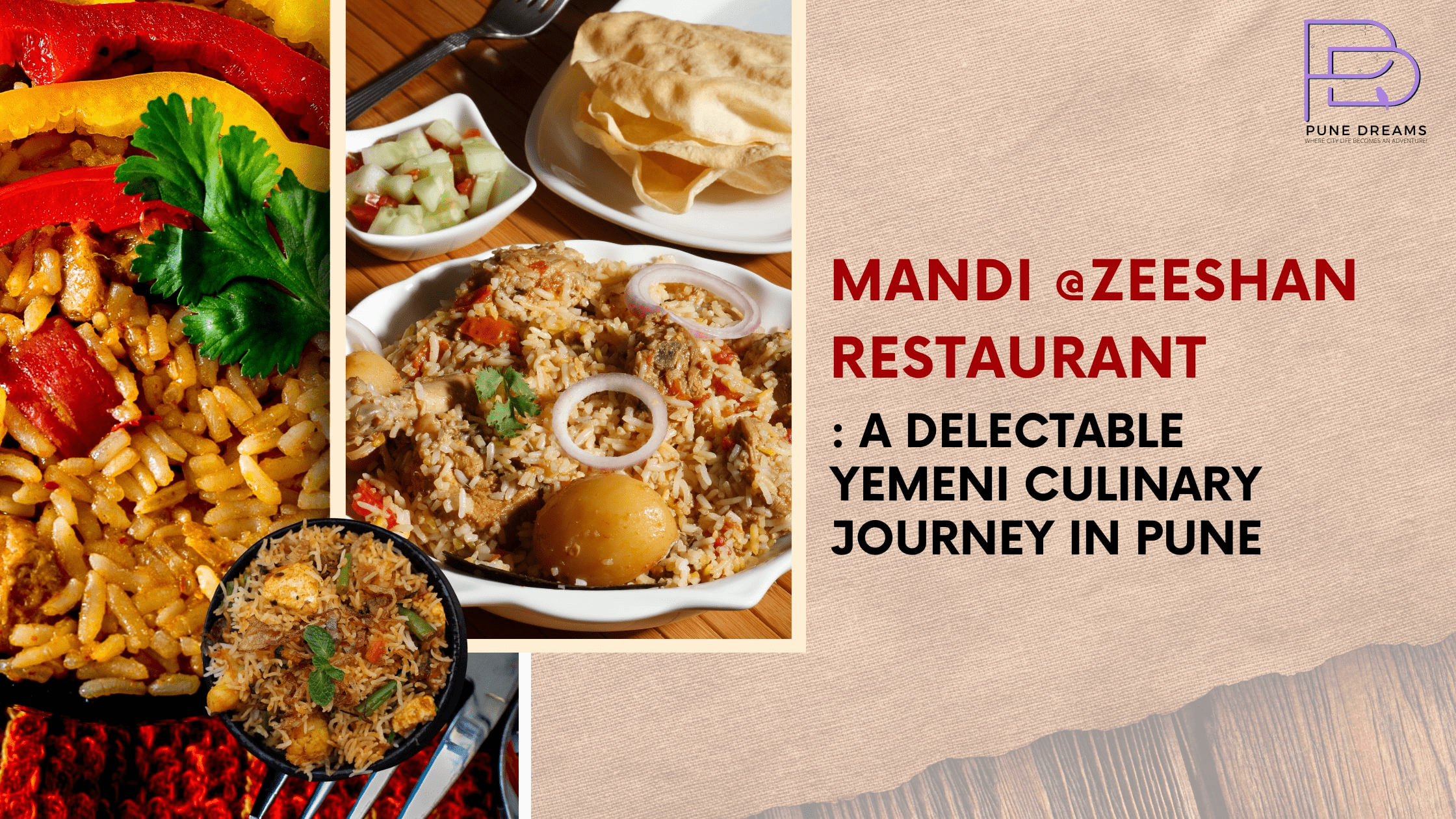
Mandi @ Zeeshan Restaurant: A Delectable Yemeni Culinary Journey in Pune
In the bustling city of Pune, there’s a place called Zeeshan Restaurant that promises a delicious adventure, especially if you’re a fan of Yemeni cuisine. They offer a Biryani Thali that’s perfect for sharing with your loved one. Packed with tandoori chicken, eggs, shorba, and two kinds of rice, this thali is a treat for your taste buds. If you’re up for more, give the Dum Ka Chicken and Arabian Mandi a try. And, of course, don’t forget to end your meal on a sweet note with some scrumptious Malai Rabri.

Photo Credit: http://surl.li/rlwvu
What’s Mandi, and Why is it Special?
Mandi is not just any dish; it’s a traditional Yemeni delight that takes you on a flavorful journey. This fragrant combination of basmati or Indian rice, slow-cooked meat, and aromatic spices captures the essence of centuries-old Bedouin culture.
The Mandi Experience:
Mandi gets its name from the “dewy” texture of the meat, and it’s traditionally prepared in a special underground oven called a tanoor. This unique cooking method acts like a pressure cooker, giving the rice and meat distinct, mouth-watering flavors. While modern adaptations are made in restaurants today, the essence remains true to the traditional Yemeni way.
A Rich History:
The roots of Mandi run deep into Yemeni culture, reflecting centuries of culinary traditions. Originating in the southern Arabian Peninsula, particularly in the Hadhramaut region of Yemen, Mandi has a rich historical significance. It was a staple for Bedouin tribes during their nomadic journeys through the arid desert landscapes.
Sharing Tradition and Flavor:
Mandi isn’t just a dish; it’s a symbol of hospitality, generosity, and community. Often shared as a communal meal, it brings people together to enjoy the rich culinary heritage of Yemen.
Global Popularity:
Today, Mandi has crossed Yemen’s borders and can be savored in Yemeni restaurants worldwide. Yemeni communities and restaurants in various countries, including Saudi Arabia, the UAE, the United States, and the UK, have introduced Mandi to international audiences, making it a sought-after dish.
A Local Touch in India:
Mandi has also found its way to India, gaining popularity among food enthusiasts, especially in Kerala, where it is known as “kuzhimanthi.” Many restaurants offer the authentic preparation style, cooked in an underground pit fueled by charcoal.
So, if you’re ready for a unique culinary experience, consider trying Mandi at Zeeshan Restaurant in Pune.
Zeeshan Restaurant;
Address- Apna Hyderabadi Food – Peshwa Complex, Building number 2, Plot No. 84, East Lane, Clover Park, Viman Nagar
Timings | 12 Noon – 11:30 PM
Price | Rs 449 Onwards
